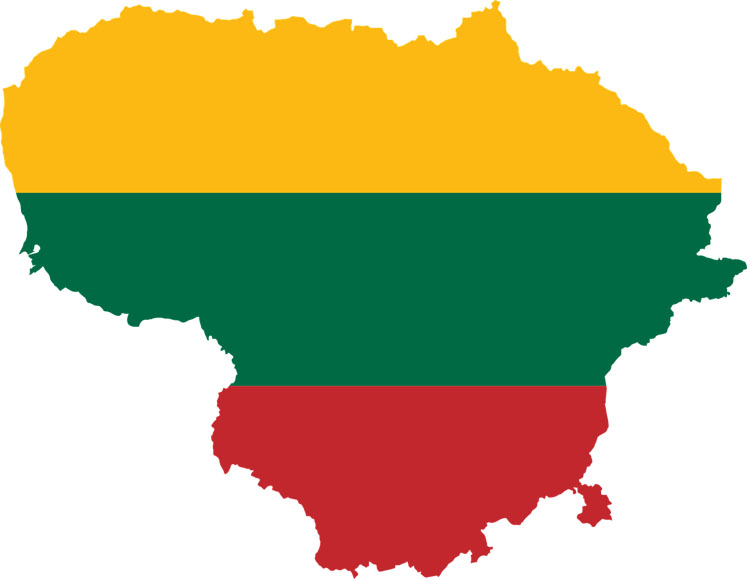The first industry sponsored clinical trials in Lithuania began in 1992.1 Since then, during the subsequent 30 years, the clinical research environment has undergone substantial development, particularly regarding the local regulatory environment, volume of studies and presence of both pharmaceutical industry sponsors and contract research organisations (CROs).
All these developments have led Lithuania to become an attractive environment in which to conduct biomedical research.
For example, Lithuania offers a favourable business model for companies to run clinical trials, which is increasingly recognised by many of the sector’s key players. More than 90 international biotech, pharma and medical companies, including well-known global organisations such as Abbvie, Sanofi, Bayer and Novartis, have picked Lithuania as a location to conduct their studies.
And, with more than 600 clinical trials under way in 2021, in research areas such as gastroenterology, oncology and endocrinology, Phase III was the most common stage of investigation.2
Why Lithuania?
There are four key factors that make Lithuania an exclusively attractive location for clinical trials. First, the comparatively low density of studies taking place offers benefits in terms of fast and timely patient recruitment. When comparing Lithuania to other top countries where companies choose to perform clinical trials, there is currently a lower density of studies per capita trials per country; importantly for sponsors, this means that that patient recruitment can be done much faster, particularly for therapeutic area such as oncology, cardiology and endocrinology.

Secondly, and highlighting Lithuania’s patient recruitment potential, a special characteristic of the healthcare system in the country is the presence of centralised institutions to which patients are transferred from surrounding regions for specialised care.
These include the three main centres of Santara Clinics, Kaunas Clinics and Klaipeda University Hospital. Equipped with modern diagnostic and therapeutic equipment, these institutions attract patients with various diseases from all over Lithuania and many other countries as well.
One of the most important deliverables in clinical research is high-quality data. The Lithuanian medical community considers clinical trials to be an important aspect of facilitating early access to innovative medicines. Highly experienced and motivated investigators in the country are frequently involved as sponsors of clinical trials, which subsequently deliver top quality insights.
A United States Food and Drug Administration (FDA) analysis of good clinical practice (GCP) scored Central Eastern Europe at 39% in terms of “no deficiencies,” whereas investigations elsewhere recorded results of 16.6% and 21.5% in Western Europe and the US, respectively. This demonstrates that Eastern European countries, including Lithuania, match the US and Western Europe regarding the level of expertise and the professionalism of local investigators they offer.
Finally, when thinking about conducting clinical trials in Lithuania, the financial implications of working in this country should be also considered. Compared with the US and Western Europe, the cost of running a clinical trial in Lithuania is very competitive. Including Eastern Europe in your clinical trial strategy can reduce your outlay by 20–40% compared with Northern-Western Europe or the Nordics, and even up to 50% compared with the US.
Other factors to consider
As if that wasn’t enough, international patient recruitment is not an issue in Lithuania. If a clinical trial is registered in Lithuania, the majority of patients will most likely be of local stock thanks to the large patient pool. Yet, even if the study addresses a rare or orphan disease, there are no limitations when it comes to recruiting foreign patients; as such, citizens from abroad can also participate in clinical trials that are registered in Lithuania.
For that matter, there are several strong international clinical research organisations in the country, including Parexel, Crown CRO and others, which offer all the services required for companies to extend their clinical trials to other countries if needed.
According to worldometers.info, for example, Eastern Europe represents the largest patient population within the continental area. This alone is a significant driver for sponsor organisations to consider Eastern Europe, and potentially Lithuania, in a clinical trial strategy.

Global regulation and standards: Being a member of the European Union (EU), Lithuania falls under European Medicine Agency (EMA) regulations. The local State Medicines Control Agency (SMCA) is fully integrated within the EU regulatory system, which means that the highest standards of clinical research are ensured.
Also, in 2018, Lithuania signed a Mutual Recognition Agreement with the FDA, which therefore recognises the SMCA as being able to conduct inspections that meet US requirements; this enables foreign companies to undertake drug inspections in Lithuania and apply for FDA approval. These significant factors make the drug approval process more efficient and convenient for those wishing to do business in both the EU and the US at the same time.
CGT/ATMP products: Lithuania offers an exceptional regulatory environment for clinical trials, called hospital exemption, which allows hospitals and medical practitioners to provide advanced therapy medicinal products (ATMPs) — including gene therapy medicines, somatic cell therapies and tissue-engineered products — to patients when a high unmet medical need exists and/or because there is no authorised ATMP alternative available.
This exemption provides hospitals and medical practitioners with a mechanism to start applying therapies prior to their approval. Practically, this means that such entities can actually use novel CGT/ATMP drugs and, in parallel, collect data for final approval before marketing authorisation is granted. This attractive and time-saving opportunity thereby accelerates the approval process and reduces time-to-market.
For example, Froceth, a Vilnius-based biotechnology start-up in the ATMP field, was the first in Lithuania to qualify for the hospital exemption regulation and is now reaping the benefits. Froceth successfully develops products by using a patient’s own tissues and cells in the manufacturing process and, as a result, is able to address the specific needs of very sick individuals.
Working with the most advanced somatic cell therapy technologies, the company produces ATMPs such as a dendritic cell vaccine (DCV) and cytokine induced cell killers (CIKs) for use in cancer immunotherapy, a T-cell product for the treatment of multiple sclerosis and a stromal vascular fraction for cosmetology and traumatology.

And, capitalising on the fact that Lithuania offers such favourable start-up times for clinical studies in the country — it takes less than 60 days to receive approval — Biogen, the US multinational that specialises in the discovery, development and delivery of therapies for the treatment of neurological diseases, established a base in Lithuania in June 2020.
In their official statement, company’s representatives stated that opening a branch in Vilnius was the first part of the company’s long-term commitment to Lithuania and their intention to run trials for multiple sclerosis, spinal muscular atrophy and another related disease in the country.
To apply for approval, cover letters, application forms and any responses to queries and/or other documents can all be submitted in the English language. Clinical trial authorisation is given in parallel by the SMCA and the Lithuanian bioethics committee, who work together to ensure a rapid regulatory framework for clinical trial approval processes.
Amongst friends
A significant number of both local and global CROs already exist and operate in Lithuania, including companies such as Parexel, Biomapas, IQVIA, Labcorp Drug Development, Crown CRO (listed by number of employees in descending order). Their combined expertise covers the supervision of clinical trials, clinical trial management and providing medical and scientific services.
The presence of these companies ensures that trial sponsors have access to a comprehensive and collaborative infrastructure of experienced and efficiency oriented partners that adhere to the highest standards of operation.
Last but by no means least, data protection is a legal necessity and Lithuania’s regulations ensure that all the measures to protect and maintain information are firmly in place. The State Data Protection Supervisor monitors the activities of information controllers when processing personal data and controls the integrity of this practice. This system also ensures the protection of the rights of specific subjects and prevents violations from occurring during data processing.3
References
- https://scanbalt.org/scanbalt-news/clinical-trials-lithuania-attractive-option-study-placement/.
- www.clinicaltrialsregister.eu.
- https://crowncro.fi/2018/06/26/benefits-of-performing-clinical-trials-in-lithuania/.
